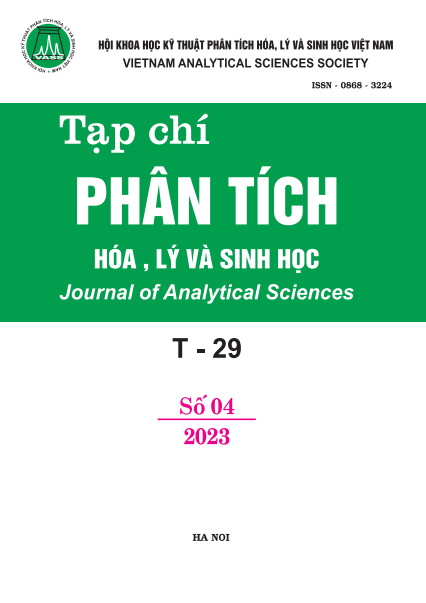EFFICIENCY OF ORGANIC MATTER CONVERSION IN ANAEROBIC MOVING BED BIOFILM REACTOR (MBBR) SYSTEM
Abstract
When discharged into the environment, organic matter in wastewater will decompose, depleting the oxygen
source in the water, affecting aquatic life, affecting the landscape, causing ecological imbalance. Therefore,
applying appropriate technology to treat organic-rich wastewater is a very important and urgent issue. One
of the biological treatment technologies that has been and is being applied is the moving bed biofilm reactor
system (MBBR) with a moving carrying material with a adhered microorganisms to the surface (biofilm) to
create favorable conditions for anaerobic microorganisms to grow and decompose organic matter in
wastewater. This study evaluated the effectiveness of decomposing organic matter of actual piggery
wastewater based on total COD and dissolved COD of a laboratory-scale anaerobic MBBR system with 3
input loading rates: 2.0; 4.0 and 6.0 gCOD/L.day. The results showed that the decomposition efficiency of
organic matter reached the highest of about 80 and 60% for CODt and CODht, respectively. The removal
efficiency of TSS was quite high, reaching 84-90%. However, there was no clear correlation between
organic matter decomposition efficiency and TSS type especially at high loading rates. The density of
microorganisms in the reaction system increased significantly with high density and mainly (90-92.5%)
were adhered microorganisms in biofilm.

